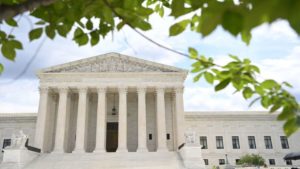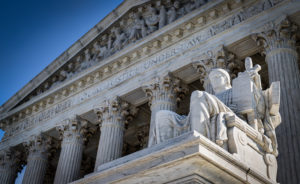Returning to Agency Deference in Communications Law
With its Prometheus decision, the U.S. Supreme Court centered agency deference in reasonableness.
Giving California v. Texas the Attention It Deserved
The Supreme Court’s latest ACA case was properly dismissed, but a waste of time.
The Supreme Court’s “Exceptional” Term
Several of the Supreme Court’s recent decisions bolster agency power to alleviate regulatory obligations.
The Supreme Court’s 2020-2021 Regulatory Term
Scholars discuss some of the Court’s most significant regulatory decisions.
Should Regulatory Violations Ever Be Criminal Offenses?
Scholar argues that delegation of criminal authority is less dangerous to the public than critics claim.
Title IX and Campus Sexual Assault
Experts address how changing Title IX policies on campus sexual assault impact students.
Lost in Translation in Immigration Detention
Scholars analyze linguistic and cultural barriers asylum-seekers face in the credible fear interview process.
Regulatory Reactivity in FDA’s Approval of Aduhelm
A controversial approval of an Alzheimer’s treatment reveals a core weakness in oversight of agency discretion.
Auditing Failures Amid the COVID-19 Crisis in India
The Office of the Comptroller and Auditor General failed India during the coronavirus pandemic.
Where Will Native Children Find Their Homes?
A Fifth Circuit ruling adopts a novel approach to a law that determines where Native children grow up.
Federal Court Involvement in Supervised Release
Study indicates a vital judicial role in overseeing defendants’ reentry following prison.












